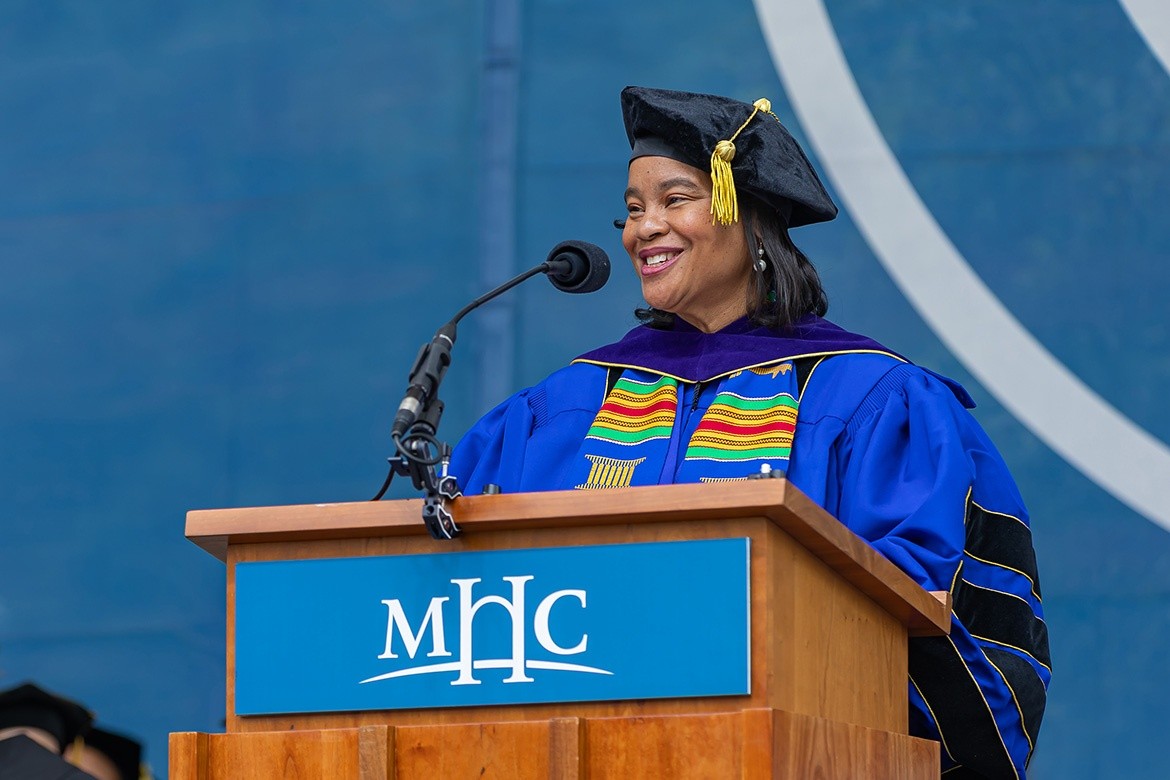Frances Perkins, DEI and the “engine of excellence”

In an op-ed for the San Francisco Chronicle, Mount Holyoke College President Danielle R. Holley connects the legacy of alum Frances Perkins, class of 1902, with the federal government’s attacks on diversity, equity, inclusion and accessibility in higher education.
In an editorial published in the San Francisco Chronicle, Mount Holyoke College President Danielle R. Holley connects the legacy of Frances Perkins, class of 1902, the first woman to serve in a U.S. presidential cabinet, with current attacks on diversity, equity, inclusion and accessibility (DEI) in higher education.
During Perkins’s time as Secretary of Labor under Franklin D. Roosevelt, she helped establish Social Security, child labor laws and the 40-hour work week. She used her leadership of the Immigration and Naturalization Service to defend immigrant rights.
Holley argues that the values that guided Perkins are under threat from federal policies that restrict DEI initiatives and limit academic freedom. She cites recent executive and agency actions to remove references to race and gender in government materials, investigate universities for alleged “race-based preferences” and cut funding for research focused on gender and inclusion. She notes that Mount Holyoke “recently received notice that one of our grants had been cut; the letter from the federal government asserted, in plain terms, that research related to gender is neither beneficial nor scientific.”
Holley positions DEI as essential to academic excellence and equity, not as a political stance but as a continuation of Mount Holyoke’s founding mission to expand access to education. “To attack DEI is to suggest that the work Perkins began and that we continue no longer matters,” she writes. “That we no longer need to prioritize inclusion in research, equity in hiring or support for first-generation, international, disabled and low-income students. That idea is not only false, it is dangerous.”
She contends that dismantling DEI efforts would reverse decades of progress for marginalized groups and undermine the purpose of higher education.
“DEI is not separate from excellence. It is the engine of it,” Holley writes. “Dismantling it would be to deny not only the needs of today’s students, but the hard-won legacy of those like Perkins who demanded a more just America.”
Read the editorial.
This article may require a subscription.
